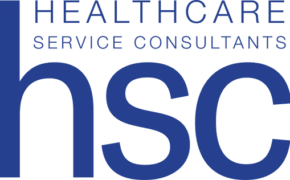Many companies create customer case studies as part of their education and marketing efforts. You can think of a well-written case study as an extended, detailed testimonial or customer review. The main difference is that the company writes case studies, while the customer writes testimonials and reviews.
Therein lies a major dilemma of writing case studies. How do you develop an unbiased but positive discussion about your own product?
Walk Through the Buyer’s Journey
One way is to focus on customers’ success with your product. Case studies play an important role in walking the buyer through the buyer’s journey. They inform and educate the prospect by illustrating a real-world problem. A case study should articulate the customer’s problem. It should also highlight the impact of the problem on productivity, cost, or clinical quality. Use objective data and your customers’ actual success to substantiate the narrative.
Provide Analysis of the Product’s Benefits
Writing case studies also offer a great opportunity to articulate the benefits of the company’s products in the context of a real-world example. An unbiased analysis of the product’s benefits will carry a great deal more credibility than a gushing testimonial alone. A case study should illustrate how the company’s product helped solve the problem. It should also reflect the benefits the customer realized by solving the problem.
Use Real-Life Examples to Build Credibility
Case studies based on real-life customers lend credibility to the business’s story. When possible, and if the customer approves, you should mention the healthcare provider organization’s name. Otherwise, the reader could conclude the story is “fictional” or embellished.
Naming specific organizations also builds empathy and authenticity. Prospects who share the same challenges as the ones in the case study picture themselves utilizing the same solution. The case study should include quotes from the end user. Such information identifies the challenges and benefits they experienced. Again, this lends the story empathy, authenticity, and credibility.
Unfortunately, the marketing departments of many larger healthcare organizations don’t allow this. This is because they are afraid it will appear as an endorsement of the vendor. That would violate their internal policy against endorsing any specific vendor.
Use Education to Overcome Customer Objections
The customer “brand-name” adds important credibility to your marketing efforts. Bet approval from the marketing department before writing the case study.
You can educate customers about how to avoid endorsing a specific vendor while still allowing the organization’s name. Providing examples of past case studies can serve to educate all. Doing so will allay any fears that the case study is masking as an endorsement of the vendor. If all else fails, you may need to rewrite the case study to be anonymous.
Credibility is critical for writing case studies that convert prospects into customers. Your case studies become persuasive marketing resources when they:
- speak to the buyer’s journey
- articulate the benefits of a product
- invoke the names of reputable, real-world organizations as examples
An unbiased discussion about your own product enhances the sales effort. A well-written case study is an excellent start to that discussion.




